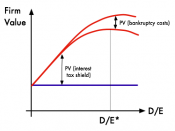Lester Electronics Inc (LEI) is at a crucial juncture of the business. Bernard Lester cannot continue to manage the business as has historically been done due to the changes in the industry and a possible loss of their largest vendor, Shang-wa. Having evaluated the options available, given the current situation, the Executive Management of Lester Electronics has chosen to move forward with the merger of Shang-wa electronics as the course of action that is in the best interest of the organization. This option was selected above remaining an independent firm or accepting the buyout offer from Avral Electronics. Lester Electronics' financial team now needs to develop a plan for the venture to occur. The merger will create opportunities in the world market as Lester expands its boarders into other countries. With this decision Lester Electronics must now move to establishing a financial strategy that includes Lester Electronics' own growth strategy, as well as that of Shang-wa.
The company will need to formulate a successful financial plan that will optimize the growth opportunities and maximize the shareholders' wealth.
Situation AnalysisIssue and Opportunity IdentificationSome of the issues that involve the merger that Lester Electronics will need to face include Transnational Electronics Corporation (TEC) has approached Shang-wa with a hostile takeover bid. If Shang-Wa is acquired by TEC then LEI will lose a contract with the company's main supplier. This will lead to a possible loss for Lester Electronics of 43% revenue over the next five years.
Lester Electronics has to determine if they have the financial capacity to complete a merger with Shang-Wa. "Excess financial capacity is free cash flow plus excess debt capacity. Jensen (1986) defines free cash flow as the cash flow in excess of that needed to fund all positive net present value (NPV) projects. Excess debt capacity is...


